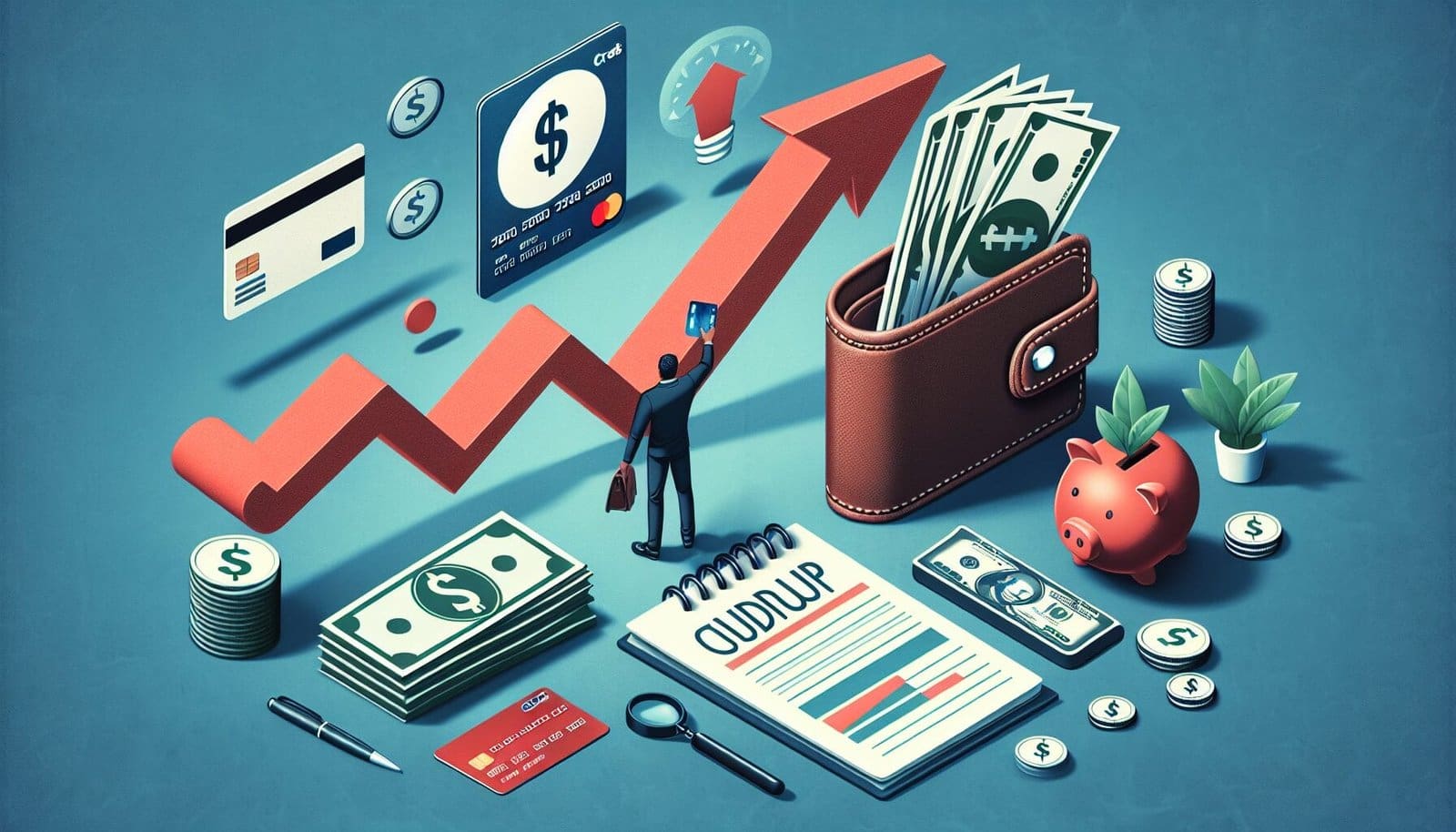Credit can be a powerful tool when it comes to managing our finances, but it also has the potential to lead us down a path of overwhelming debt if not used responsibly. In this article, we will explore some helpful tips and strategies for using credit responsibly, allowing us to reap its benefits without succumbing to the dangers of excessive debt. By understanding the importance of budgeting, paying off balances in full, and keeping track of our credit utilization, we can navigate the world of credit with confidence and safeguard our financial well-being.
Understanding Credit
What is credit?
Credit refers to the ability to borrow money or access goods and services with the agreement to pay for them later. It allows individuals or businesses to make purchases and transactions without having to pay the full amount upfront. Instead, they can make monthly payments over time. Credit is typically granted by financial institutions or lenders, who assess the borrower's creditworthiness and determine the terms and conditions of the credit agreement.
Different types of credit
There are various types of credit available to consumers, each serving different purposes and needs. Some common types of credit include:
- Credit cards: Credit cards allow users to make purchases up to a certain credit limit, which they are required to repay within a specified period or carry forward with interest.
- Loans: Loans provide borrowers with a lump sum of money that is repaid over time, usually with interest. Examples include personal loans, auto loans, and mortgages.
- Lines of credit: Similar to a credit card, a line of credit provides borrowers with a maximum amount they can borrow. They only pay interest on the amount borrowed.
- Store credit: Often offered by retailers, store credit allows customers to make purchases on credit specifically within the store or affiliated stores.
- Installment plans: These allow consumers to pay for purchases in equal installments over a set period, without accruing interest.
Understanding the different types of credit helps individuals choose the right option based on their needs and financial goals.
How credit scores work
A credit score is a numerical representation of an individual's creditworthiness, indicating the level of risk associated with lending money to them. Creditors, such as banks and lenders, use credit scores to assess whether to approve credit applications and determine the interest rates offered. Several factors contribute to calculating a credit score, including payment history, credit utilization, length of credit history, types of credit used, and new credit inquiries.
Scores typically range from 300 to 850, with higher scores indicating lower credit risk. Maintaining a good credit score is important, as it can affect an individual's ability to obtain credit, secure better interest rates, and access financial opportunities.
Managing Your Finances
Creating a budget
Creating a budget is a fundamental step in managing finances effectively. It involves assessing income, expenses, and financial goals to allocate money appropriately. Start by determining fixed expenses (rent, mortgage, utilities), variable expenses (groceries, entertainment), and savings goals (emergency fund, retirement). Consider using budgeting tools or apps to simplify the process and track spending.
Tracking expenses
Keeping track of expenses is crucial in understanding spending patterns and identifying areas where adjustments can be made. Utilize tools like budgeting software or mobile apps to track and categorize expenses automatically. Regularly reviewing spending habits helps identify unnecessary expenditures and fosters better financial decision-making.
Saving for emergencies
Building an emergency fund is essential to manage unexpected financial emergencies. Aim to save at least three to six months' worth of living expenses to cover unforeseen situations like job loss, medical emergencies, or car repairs. Automate contributions to the emergency fund and consider opening a separate savings account to prevent the funds from getting mixed with daily expenses.

Evaluating Credit Options
Comparing interest rates
Interest rates significantly impact the cost of credit, so it's important to compare rates across different lenders or financial institutions. Look for competitive rates that best fit your needs and consider whether fixed or variable rates work better for your situation. Lower interest rates can save you money in the long run, so it's worth investing time in research and comparison.
Reading and understanding credit terms
Before committing to any credit agreement, take the time to read and understand the terms and conditions thoroughly. Pay attention to details such as interest rates, payment schedules, penalties, and fees. If there are any unclear or confusing parts, don't hesitate to seek clarification from the lender or financial advisor.
Choosing the right credit card
When selecting a credit card, consider factors such as rewards programs, annual fees, grace periods, and additional perks. Assess your spending habits and financial goals to determine which card aligns best with your needs. For instance, if you frequently travel, a credit card with travel rewards or no foreign transaction fees might be beneficial.
Establishing Good Credit Habits
Paying bills on time
One of the most important habits to establish for good credit health is paying bills on time. Payment history plays a significant role in determining credit scores. Late payments can negatively impact credit scores and result in late fees or increased interest rates. Set up automatic bill payments or reminders to ensure payments are never missed.
Avoiding unnecessary purchases
Impulse buying can lead to unnecessary debt and financial stress. Avoid making unnecessary purchases by differentiating between needs and wants. Take time to consider if a purchase is essential or if it can be delayed or avoided altogether. Practicing self-discipline when it comes to spending helps maintain healthy financial habits.
Limiting credit utilization
Credit utilization ratio is the percentage of credit used in relation to the total available credit. Keeping utilization below 30% is generally considered favorable. High credit utilization can negatively impact credit scores. To maintain a healthy ratio, consider paying off credit card balances in full each month or increasing credit limits.

Building a Solid Credit History
Starting with a secured credit card
For individuals with little or no credit history, a secured credit card can be a great tool to build credit. With a secured card, users provide a deposit that acts as collateral. As the card is used responsibly and payments are made on time, a positive credit history is established, which can help qualify for other credit options in the future.
Becoming an authorized user
Another way to build credit is by becoming an authorized user on someone else's credit card. The primary cardholder's positive payment history is reflected on the authorized user's credit report, contributing to their credit history. However, it is crucial to ensure that the primary cardholder has responsible credit habits.
Taking out a small loan
Taking out a small loan and repaying it on time demonstrates responsible borrowing behavior and contributes to building a positive credit history. Consider options such as a small personal loan, a credit builder loan, or a secured loan. Make sure to make timely payments and keep the loan amount manageable.
Using Credit Cards Responsibly
Setting a monthly spending limit
To avoid overspending, set a monthly spending limit for your credit cards that aligns with your budget. This ensures that you stay within your means and can comfortably repay the balance in full each month. Regularly review your spending to ensure you are staying on track with your limit.
Paying off the balance in full
Paying the credit card balance in full each month not only avoids interest charges but also helps maintain a positive credit history. If paying off the full balance is not possible, strive to pay more than the minimum payment to reduce interest charges and pay down the debt faster.
Avoiding cash advances
Using credit cards for cash advances can be tempting in emergencies, but it often comes with high fees and interest rates. Explore alternative options, such as using a personal emergency fund or obtaining a small loan, to avoid the costly consequences of cash advances.
Avoiding debt: Tips for using credit responsibly
Avoiding Impulsive Purchases
Creating a 24-hour rule
Implement a “24-hour rule” for purchases to avoid impulsive buying. When tempted to make a non-essential purchase, give yourself 24 hours to decide whether it is something you truly need or if it was an impulsive desire. This allows time for reflection and helps prevent unnecessary spending.
Shopping with a list
Make a shopping list before entering a store or shopping online. Stick to the list and avoid making additional purchases that are not essential. This strategy reduces the likelihood of impulse buying and helps maintain control over your spending.
Avoiding emotional spending
Emotional spending often occurs as a result of stress, boredom, or other emotional triggers. Pause and assess your emotional state before making a purchase. Find alternative ways to cope with emotions, such as engaging in hobbies, exercising, or talking to a friend, rather than relying on retail therapy.
Managing Debt Effectively
Prioritizing debt repayment
When facing multiple debts, prioritize them based on interest rates and minimum payments. Focus on paying off high-interest debts first, as they cost more over time. Make regular payments on all debts, but allocate extra funds towards the debt with the highest interest to reduce the total cost of borrowing.
Consolidating high-interest debts
Consider consolidating high-interest debts into a single loan or transferring balances to a low-interest credit card. Debt consolidation can simplify repayment and potentially reduce interest costs. However, it is important to carefully read the terms and assess any fees associated with the consolidation process.
Seeking professional help if needed
If debt becomes overwhelming or unmanageable, seek help from professional credit counselors or financial advisors. They can provide guidance on debt management strategies, negotiate with creditors, and develop plans to regain control over finances. Don't hesitate to reach out for support when needed.
Understanding Credit Card Fees
Annual fees
Some credit cards charge an annual fee for the benefits and rewards they offer. It's essential to consider whether the benefits justify the cost of the fee. Evaluate your spending habits and compare the potential rewards to the annual fee before choosing a credit card with an annual fee.
Late payment fees
Late payment fees are charged when credit card bills are not paid by the due date. Make it a priority to always pay credit card bills on time to avoid these fees, as they can add up and jeopardize good credit standing. Set up automated payments or reminders to ensure timely payments.
Foreign transaction fees
When using credit cards abroad or for international purchases, some cards charge foreign transaction fees. These fees can vary from card to card. If you frequently travel or make international transactions, consider choosing a credit card that offers no foreign transaction fees to avoid unnecessary charges.
Monitoring Your Credit
Checking credit reports regularly
Regularly checking your credit reports is essential to identify any errors or fraudulent activity. Federal law allows individuals to request a free credit report from each of the major credit bureaus (Equifax, Experian, and TransUnion) once a year. Review the reports for accuracy, such as correct personal information, accounts, and payment history.
Detecting and reporting errors
If any errors or inaccuracies are found on credit reports, promptly report them to the respective credit bureaus. Inaccurate information can harm your credit score and affect creditworthiness. Follow the dispute process outlined by the credit bureaus to rectify errors and ensure your credit information is correct.
Protecting against identity theft
Guarding against identity theft is crucial to maintaining good credit health. Protect personal information, such as social security numbers and credit card details, by using strong passwords, shredding sensitive documents, and being cautious when sharing information online. Monitor credit reports regularly for any signs of unauthorized activity and consider utilizing identity theft protection services.
By understanding credit, managing finances effectively, evaluating credit options, establishing good credit habits, using credit cards responsibly, avoiding impulsive purchases, managing debt, understanding credit card fees, and monitoring credit reports, individuals can navigate the world of credit in a responsible and informed manner. Taking proactive steps towards building and maintaining good credit can lead to better financial opportunities and a more secure financial future.





